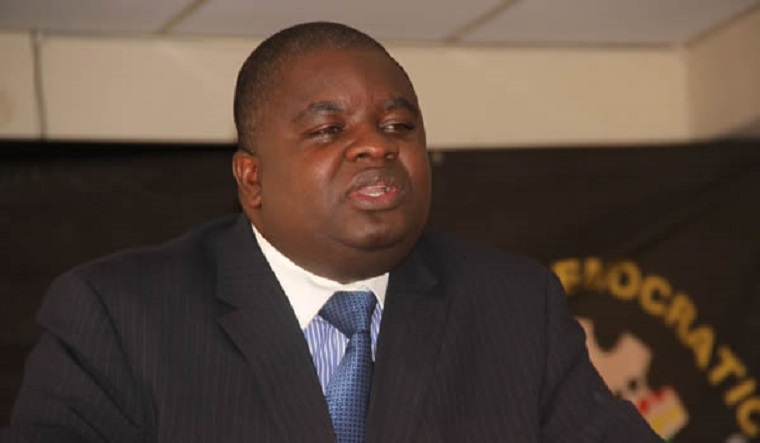HON. DR. MASHAKADA: Thank you Madam Speaker. I wish to thank Hon Dr Khupe for raising this very important motion seconded by Hon Gabbuza. The motion raises fundamental issues in the political economy. Political economy issues that are being raised include what we call natural resources scarce. It is possible to have natural resources abundant but the country remaining poor. We call that natural resources scarce. That question of natural resources scarce is not only afflicting Zimbabwe. It is affecting many African countries that are blessed with many abundant resources but their people are wallowing in poverty. They have no hospitals, educational facilities, poor roads yet they are sitting on abundant resources. It is high time we address this issue of natural resource scarce head on so that our people benefit from our God given resources.
The other political economy raised in this motion is a question of ownership. We cannot develop our country or economy until we address ownership partnership of these natural resources. You find that in most African countries, these natural resources that we must leverage to develop the economy are owned by multinational companies or monopolies and they do not want to release those resources for the development of the whole country. I will give you a typical example of chrome deposits in this country. The chrome deposits are in the hands of very few chrome mining companies. They do not want to free their claims. That is why Government is always talking about ‘use-it or lose-it’ because those multinational companies are holding huge reserves of chrome and platinum and they cannot release those to the nation to be developed. They are using what we call tributaries, giving indigenous people one or two claims but they get the lion’s share. Such a model of exploitation of mineral resources will not develop the country. It is a big political economy issue of the ownership of these mineral resources. So, we must address that if we are to leverage them in our national development. This then brings me to the question of what it is we need to do to leverage of our mineral resources to develop our country. I will come to the issue of Lupane very soon but I am proposing two models to ensure that we leverage our domestic resources to benefit our country. The first model is what I call economic planning. These resources will not benefit us if we do not plan as a country. That is where the issue of developmental state becomes relevant. It is only when you have got a strong developmental State that plans its economy and the usage of its resources that you can get your minerals and other natural resources to benefit the whole country.
I will give you a typical example of failure to plan. If you look at the number of dams in this country, you will be surprised. The latest one being Tokwe-Mukorsi where we spent about US$250 million to build the dam without any plans on what to do next. That dam was completed in 2013 but there is no irrigation that is happening. The water is not going to the lowveld. There is no special planning around that dam or is there any economy surrounding that dam. So, we need proper economic planning at a Developmental State Level to make sure that our natural resources are leveraged. It cannot just happen on its own without proper economic planning, which is very important.
The other issue I am proposing is what we call Economic Growth Nods. That is the easiest way to make sure that communities develop and benefit from the local resources that are found in their communities. If we develop local growth nods, we make sure that like in Lupane for example, the economy of Matabeleland North is driven by coal or the natural resources found there and the communities must benefit from those natural resources. In this case, the coal-bed methane that is found in Lupane can propel development in the whole of that region just as my colleagues have already ably demonstrated from coal-bed methane, which simply is that gas which is trapped in the coal reserves underground. So, you need the technology to extract that gas so that you can use some of it as LPG or use coal chemical methods to turn it into fuel so you can have so many bi-products from the coal-bed methane. You can also use it as natural gas. Natural gas is in high demand as we speak and this is the reason why we now have got insurgence in Carbo-del-Gardo because Mozambique has discovered huge amounts of natural gas in that area. You may recall that Total, the French company has invested about US$6.3 billion to mine natural gas in Carbo-del-Gardo. That is a lot of money coming into Mozambique as an investment. Everybody knows that this is the way to develop. War is now breaking out for the control of those resources. So, we are sitting on resources that can develop our country and leap frog it towards Vision 2030 or even surpassing a middle income status to become an industrialised and developed economy if we do our maths right. I support the motion in the sense that the coal-bed methane has to be exploited and the people of Matabeleland North have to benefit from that resource. The whole country has to benefit from the exports of the product from the exploitation of this important resource. I pray that Government will take this motion seriously and make sure like Dr. Khupe said, we walk the talk. I thank you Madam Speaker.
(246 VIEWS)


